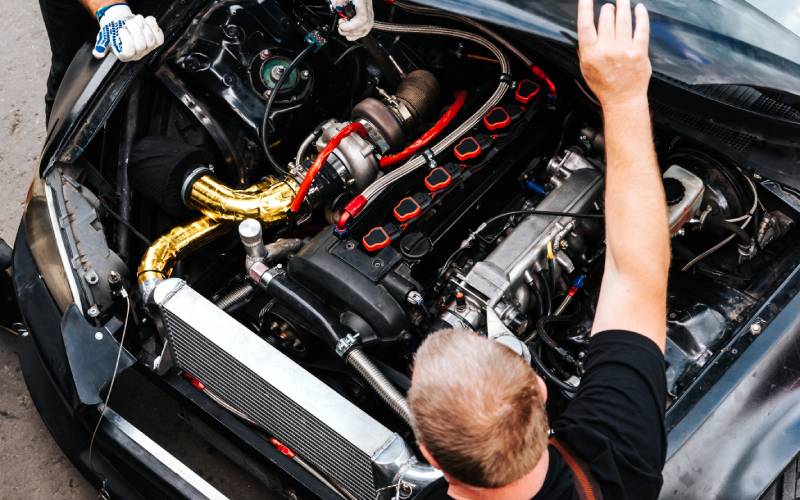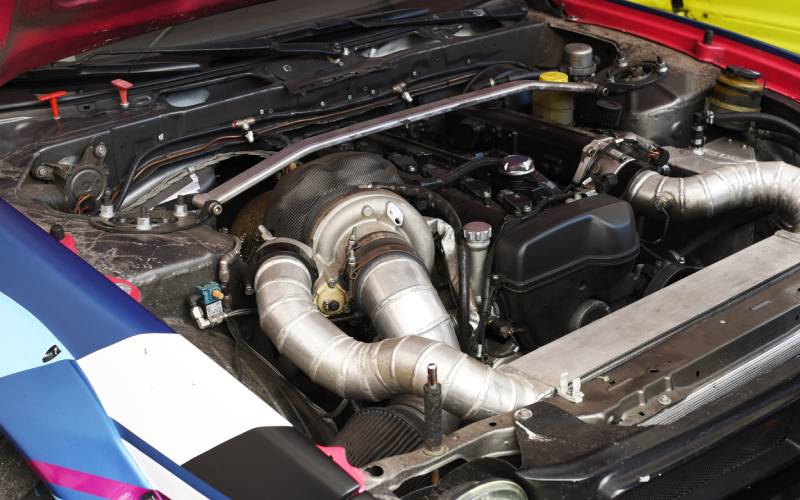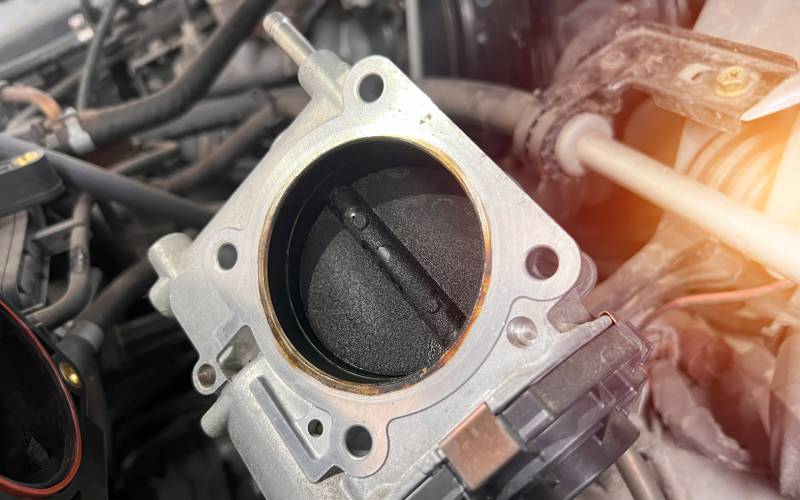What Is Engine Knock and How Can You Fix It?

Engine knock is a term that every car enthusiast should understand and familiarize themselves with. At first, the knock may seem like a peculiar and slightly annoying but harmless noise. However, it is often the start of something bigger and can result in hefty repairs down the road. Understanding what engine knock is and how you can fix it can make things a lot easier for you and help maintain the quality and condition of your vehicle.
What Is Engine Knock?
On top of just being an annoying sound, engine knock is a common sign that there’s trouble beneath the hood. An engine produces the knock because of abnormal combustion inside the cylinder. Normally, the air-fuel mixture within your engine should ignite smoothly and uniformly, creating a controlled burn. However, when knocking occurs, this mixture ignites unevenly, resulting in a sharp pinging or knocking sound.
The noise often resembles marbles clattering around inside a tin can and can be both alarming and frustrating for any car owner. It’s crucial to address the noise quickly, as prolonged engine knock can lead to severe engine damage. The knock indicates that the combustion process is out of sync, potentially stressing engine components like pistons and cylinder walls.
Causes of Engine Knock
Determining the cause of engine knock is the first step in fixing it. There are several reasons why your engine might be producing this troubling noise.
Low-Octane Fuel
One of the most common causes is low-octane fuel. Engines designed for higher octane levels can knock when running on fuel that doesn’t meet their specifications. The lower the octane, the higher the chance of premature combustion occurring.
Carbon Buildup
Another prevalent cause is carbon buildup within the combustion chamber. Over time, carbon deposits can accumulate on the cylinder walls, reducing the space and causing the air-fuel mixture to ignite too early.
Incorrect Ignition Timing
Incorrect ignition timing can also lead to engine knock. The timing determines when the spark plugs fire and ignite the air-fuel mixture. If the spark plugs fire too soon or too late, they can disrupt the combustion process, resulting in knocking.
Knock Sensors and Their Role
Most modern vehicles have some sort of engine knock sensor to help owners detect and manage this phenomenon when it occurs. These sensors pick up the unique frequencies associated with knocking and use the engine control unit (ECU) to adjust the ignition timing or air-fuel mixture to mitigate the issue.
Most manufacturers mount the knock sensors on top of the engine block, where they can accurately sense the vibrations caused by knocking. These sensors send signals to the ECU, allowing it to make necessary adjustments to prevent engine damage.
If your car’s check engine light comes on and the knock sensor is to blame, don’t postpone going to the mechanic. Your mechanic can inspect and repair or replace the sensor if necessary.

How To Diagnose Engine Knock
Proper diagnosis is helpful in resolving engine knock effectively. Start by listening carefully to your engine. A persistent and consistent knocking sound, especially under acceleration, often indicates knocking. If you hear the noise, check your owner’s manual for the recommended fuel octane level and ensure that you’re using the correct type of fuel.
You should also inspect the spark plugs for wear or damage. As we mentioned, old or faulty spark plugs can misfire or fail to ignite the air-fuel mixture properly, leading to knocking.
You can also examine the ignition timing using a timing light to ensure that it’s set to the manufacturer’s specifications. If the timing is off, it could be the culprit behind the knock.
How To Fix Engine Knock
Now you know what engine knock is, its causes, and how to diagnose it in your vehicle. But how can you fix it? We cover the main solutions below.
Focus on Fuel Quality
Fuel quality plays a significant role in preventing engine knock. Always use fuel with the recommended octane rating for your vehicle. Higher-performance engines often require premium fuel to operate smoothly. While it may cost more at the pump, using the correct fuel can prevent costly engine repairs down the road.
If you suspect that your fuel is the culprit, consider adding a fuel system cleaner. These additives can help remove carbon deposits and improve combustion efficiency. However, it’s important to use these products according to the manufacturer’s instructions to avoid any adverse effects.
Address Carbon Buildup
To get rid of carbon buildup, consider using a fuel injector cleaner periodically to keep the fuel system clean and free from deposits.
Regularly changing your oil and air filters also helps minimize carbon buildup. Clean oil helps lubricate your components to keep them functioning. Clean air filters prevent contaminants from entering the engine, reducing the chances of carbon deposits forming.

Improve Oil Quality
Choosing the right oil is crucial for reducing carbon buildup and achieving optimal engine performance and longevity, especially during those initial stages of engine life. Driven Racing Oil offers a range of specialized products, including break-in engine oil, to ensure the best start for your engine while preventing unwanted engine knock.
Calibrate Ignition Timing
It’s a good idea to regularly check your ignition timing, especially when your vehicle has a high mileage. A professional mechanic can use specialized equipment to adjust the timing accurately. Keeping the ignition timing in check ensures smooth engine operation and reduces the risk of knock-induced damage.
Upgrade Engine Components
Enthusiasts looking to enhance engine performance while minimizing the risk of knocking may want to upgrade specific components. For instance, you might consider installing high-performance spark plugs that can withstand higher temperatures and provide consistent ignition.
A performance air intake system can also improve airflow and combustion efficiency, reducing the likelihood of engine knock. However, it’s crucial to choose components that are compatible with your vehicle and not overly aggressive, as these can lead to other mechanical issues.
Consult the Professionals
While many car enthusiasts enjoy working on their vehicles, some issues call for the help of a professional. If you can’t diagnose or resolve engine knock on your own, consulting a qualified mechanic is a wise decision. They have the expertise and tools to pinpoint the exact cause of knocking and implement the necessary repairs.
And remember that Driven Racing Oil is always here to help. Learn more about what we have to offer and how to care for your vehicle by checking out our website and contacting us with any additional questions, comments, or concerns.

You must login to post comments.